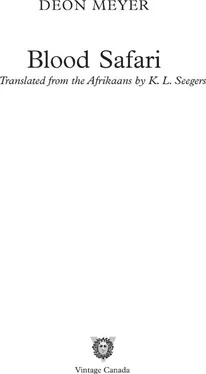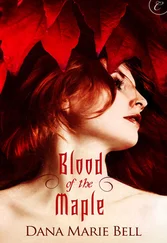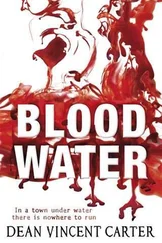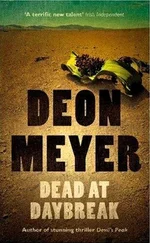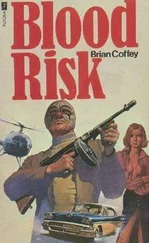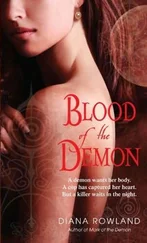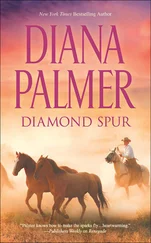Deon Meyer - Blood Safari
Здесь есть возможность читать онлайн «Deon Meyer - Blood Safari» весь текст электронной книги совершенно бесплатно (целиком полную версию без сокращений). В некоторых случаях можно слушать аудио, скачать через торрент в формате fb2 и присутствует краткое содержание. Жанр: Старинная литература, на английском языке. Описание произведения, (предисловие) а так же отзывы посетителей доступны на портале библиотеки ЛибКат.
- Название:Blood Safari
- Автор:
- Жанр:
- Год:неизвестен
- ISBN:нет данных
- Рейтинг книги:4 / 5. Голосов: 1
-
Избранное:Добавить в избранное
- Отзывы:
-
Ваша оценка:
- 80
- 1
- 2
- 3
- 4
- 5
Blood Safari: краткое содержание, описание и аннотация
Предлагаем к чтению аннотацию, описание, краткое содержание или предисловие (зависит от того, что написал сам автор книги «Blood Safari»). Если вы не нашли необходимую информацию о книге — напишите в комментариях, мы постараемся отыскать её.
In Blood Safari
A complicated man with a dishonorable past, Lemmer just wants to do his job and avoid getting personally involved. But as he and Emma search for answers from the rural police, they encounter racial and political tensions, greed, corruption, and violence unlike anything they have ever known.
Blood Safari — читать онлайн бесплатно полную книгу (весь текст) целиком
Ниже представлен текст книги, разбитый по страницам. Система сохранения места последней прочитанной страницы, позволяет с удобством читать онлайн бесплатно книгу «Blood Safari», без необходимости каждый раз заново искать на чём Вы остановились. Поставьте закладку, и сможете в любой момент перейти на страницу, на которой закончили чтение.
Интервал:
Закладка:
In Phatudi’s photo Cobie de Villiers was in colour, but colourless – an enlargement of what could only be an identity-book photograph. De Villiers seemed weary of life. No smile, just an expressionless face and dull eyes, a forty-year-old man without prospects. The only possible similarity was in the cheekbones, but it was vague, necessitating a leap of faith, or hope.
‘Ek kan nie sê nie.’
‘Dis reg ,’ said Inspector Jack Phatudi, also in Afrikaans, ‘’ n Mens kan nie sê. You can’t say.’
Emma looked at him in surprise. ‘And all the time we’ve been speaking English,’ she said.
He shrugged his shoulders. ‘I speak sePedi, Tshivenda and isiZulu too. You came in here speaking English.’
Emma put the photos down on the table, turned around so that Phatudi could view them. ‘Look at the eyes, Inspector. And the shape of the face. Take this one and add twenty years. It is Jacobus … it could possibly be Jacobus.’
He shook his head. ‘What kind of word is “possibly”? Do you know what my job is, Mrs Le Roux? I have to make a case against this man.’ He tapped the picture of the hapless Cobie de Villiers. ‘I have to find him and I have to take him to court and my case must prove that he is guilty beyond reasonable doubt. Reasonable doubt. Those judges, they shout at you. They will shout at me if I talk about possibly. Do you understand that?’
‘I understand that. But I don’t want to take anyone to court.’
He scooped up his photo and put it back.
‘Is there anything else?’
‘Inspector, what happened to the people that were killed?’
The scowl deepened. ‘No, Mrs Le Roux, that is sub judice. I can’t tell you.’
In the BMW Emma studied the map with great concentration. I aimed the air conditioner’s cold blast at my forehead. A great relief. Emma glanced up. ‘Can we stop at a garage? I want to find out where the Mogale rehabilitation centre is.’
I pulled away. ‘Right, Mrs Le Roux.’ I echoed Phatudi’s address without thinking and she laughed in astonishing clear musical notes.
‘The inspector is an interesting man,’ she said. When her laughter had subsided, as an afterthought, she added, ‘You are too.’
Categorised with the detective. I wasn’t sure that it was fair, but I wasn’t going to react.
‘Look, there’s an Engen filling station, let’s ask there …’
I put on the indicator and turned off.
10
The centre lay against the lower slopes of the Mariepskop. The mountain, with its forbidding mass of red rock cliffs, was a powerful figure of authority guarding the plains.
Mogale Rehabilitation Centre was displayed in fancy green lettering together with a logo of a raptor’s head and an invitation to enter. Plus a programme:
TIMES OF OUR REHAB TOURS
Mondays to Saturdays:
* 1st Tour starts at 09h30 *2nd Tour starts at 15h00
‘We’re just in time,’ said Emma as she got out to open the gate.
I drove through. Beyond the gate was another notice. Wild Animals. Please remain in your vehicle. Emma got in again. A kilometre further on she said, ‘Look’ and pointed out a swarm of vultures gathering at a carcass. ‘I wonder if they feed the birds here?’
The centre was spread out – cages, gardens, lawns and covered parking for vehicles. Visitors: Please park here. A young man in khaki and green, apparently the standard uniform of the Lowveld, waited impatiently at the gate. We got out.
‘We’re about to start the tour,’ he said, but not in any unfriendly way. He was a head taller than me, with broad shoulders and an athletic self-confidence. Emma’s type.
He led us to a thatched building that was a lecture hall. Several rows of tiered wooden benches descended towards a stage. The audience was already seated, people great and small, with cameras slung around necks and cool drink cans in hand. There was a wilderness scene painted on the wall behind the stage: raptors and vultures in the sky, a leopard, hyenas and buck in the long grass between the thorn trees. The young man positioned himself centre stage. ‘Good morning, ladies and gentlemen, and welcome to the Mogale Rehabilitation Centre. My name is Donnie Branca, and I’ll be your guide this morning.’
He looked at us and said, ‘Vultures.’ For an uneasy moment, I thought he was referring to his audience.
‘They’re not cuddly, they’re not cute. As a matter of fact, we think of them as disgusting beasts – squabbling and squawking at a stinking carcass, fighting over decomposing meat. Carrion eaters with beady little eyes, scrawny necks and hooked beaks, often covered in blood and gore and guts up to their eyeballs. Pretty revolting. So most people don’t care much for vultures. Well, let me tell you, here at Mogale, we not only care for them, but we love them. With a passion.’
There was something about the tone and manner of Donnie Branca’s words that was vaguely familiar. He spoke smoothly and easily, with conviction and zeal.
He said vultures were the big game of the feathered kingdom, an indispensable link between mammals and birds in the broad spectrum of nature. They were an ecological necessity, the cleaners of the veld capable of consuming rotting carcasses from head to tail before diseases could incubate that would create havoc up and down the food chain. Vultures were part of the balance, he said, a perfect, delicate balance that had determined the cycle of life in Africa for a hundred thousand years.
‘Until we humans disturbed the balance.’
Branca allowed his words to sink in before continuing. He explained that the problem with vultures was that public and private game reserves could not fence them in. Many birds patrolled areas that were four or five times greater than the Kruger National Park. And that was where the trouble began. They would nest in mountains and valleys, in trees and forests where their ancestors had brooded for thousands of years, but humans had taken over these areas. There was an incorrect perception that vultures preyed on the farmers’ small stock and poultry. So, they were shot.
‘And then there’s the belief among the local people that vultures have magic powers. They believe that vultures have supernatural eyesight that is not only able to find food over vast distances, but is so good that they can actually see tomorrow. In other words, see into the future. Since we started a National Lottery in South Africa, sangomas, as witch doctors prefer to be called, have been selling vulture heads for a small fortune to eager gamblers who believe that they are lucky charms that will enable them to see into the future, their talisman to predict the winning numbers.’
Beside me, Emma was listening with intense concentration.
‘The market for vulture parts has skyrocketed in the past few years. Take a guess what a vulture head is now selling for. Five hundred rand? A thousand bucks? Try ten thousand rand. But the sangomas buy the dead vultures from poachers for maybe two or three hundred rand a piece. And how do the poachers capture the vultures? They poison them. They set out a carcass laced with a deadly poison and they kill a hundred or two hundred birds at once, but they are on foot and they can only carry off ten or twenty, so the others are just left to rot.’
The audience murmured their displeasure, but Donnie Branca was far from finished. He began to quote statistics of losses, every species a learned chorus in English, Afrikaans and Latin. The magnificent bearded vulture/lammergeier/ Gypaetus barbatus , which historically nested in the mountains of Lesotho, was entirely extinct in that country. ‘Completely annihilated. Nothing left, not one, not a single bird.’ On the South African side of the border only nine breeding pairs remained. ‘Nine, ladies and gentlemen. Nine.’
Читать дальшеИнтервал:
Закладка:
Похожие книги на «Blood Safari»
Представляем Вашему вниманию похожие книги на «Blood Safari» списком для выбора. Мы отобрали схожую по названию и смыслу литературу в надежде предоставить читателям больше вариантов отыскать новые, интересные, ещё непрочитанные произведения.
Обсуждение, отзывы о книге «Blood Safari» и просто собственные мнения читателей. Оставьте ваши комментарии, напишите, что Вы думаете о произведении, его смысле или главных героях. Укажите что конкретно понравилось, а что нет, и почему Вы так считаете.
